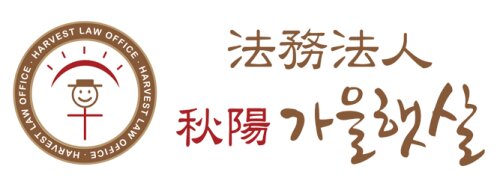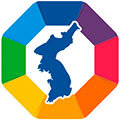Best Antitrust Lawyers in Seoul
Share your needs with us, get contacted by law firms.
Free. Takes 2 min.
List of the best lawyers in Seoul, South Korea
About Antitrust Law in Seoul, South Korea
Antitrust law in Seoul, South Korea, is primarily governed by the Monopoly Regulation and Fair Trade Act (MRFTA). The MRFTA is designed to promote fair and free competition, prevent abusive market conduct, and protect consumer interests. The Korea Fair Trade Commission (KFTC) is the key regulatory body responsible for enforcing these laws. The KFTC has broad authority to investigate, challenge, and penalize anti-competitive practices, including monopolistic behaviors, cartels, and unfair trade practices.
Why You May Need a Lawyer
Individuals and businesses may require legal assistance in Antitrust for several reasons, including:
- Receiving a notice from the KFTC regarding suspected anti-competitive practices.
- Engaging in mergers or acquisitions that need clearance from antitrust authorities due to potential market concentration issues.
- Facing allegations of engaging in price-fixing, bid-rigging, or forming cartels.
- Needing legal guidance on compliance with antitrust regulations to prevent penalties.
- Defending against antitrust litigation or filing a complaint against another company for anti-competitive behavior.
Local Laws Overview
South Korea's antitrust framework under the MRFTA includes several key provisions:
- Monopolistic Practices: Prohibits abuse of market dominance that may lead to unfair obstacles to market entry or unreasonably high pricing.
- Cartels: Detects and dismantles agreements between competitors that seek to fix prices, limit production, or allocate markets - practices typically damaging to fair competition.
- Mergers and Acquisitions: Mandatory notification and review by the KFTC to prevent excessive market concentration.
- Unfair Trade Practices: Bans deceptive or fraudulent business practices that misleadingly disrupt fair market conditions.
- Penalties: Includes fines, corrective measures, and possible criminal liability for violations of antitrust laws.
Frequently Asked Questions
What is the role of the Korea Fair Trade Commission (KFTC)?
The KFTC is the main regulatory authority tasked with enforcing the MRFTA. It evaluates mergers and acquisitions, tackles anti-competitive practices, and promotes consumer welfare.
When do I need to notify the KFTC about a merger or acquisition?
Notification is required if the combined entity meets certain asset or sales thresholds as defined by the MRFTA. Seeking legal guidance early can clarify these thresholds.
What constitutes an "abuse of market dominance"?
Practices like predatory pricing, exclusive dealing or contract terms, and refusal to deal can be seen as abuses if they unfairly restrict competition or disadvantage competitors.
How can I report anti-competitive behavior?
Complaints can be lodged directly with the KFTC via formal channels. Engaging a lawyer can help present a well-documented case against such practices.
What penalties can be imposed for violating antitrust laws?
The KFTC can impose fines, order corrections, and seek criminal charges against entities or individuals responsible for antitrust violations.
Can foreign businesses face antitrust scrutiny in South Korea?
Yes, foreign businesses operating in South Korea must comply with local antitrust laws when engaging in competitive practices within the country.
Are there any exemptions from antitrust laws in Korea?
Certain sectors, such as some public services, may be exempt, but they are rare and need specific legal criteria. It is advisable to consult a lawyer for clarity.
What rights do businesses have if accused of antitrust violations?
Businesses have the right to a fair investigation, to present defenses, and to appeal decisions made by the KFTC regarding compliance and penalties.
What are the recent trends in antitrust enforcement in Korea?
Recent trends indicate a focus on technology markets, online platforms, and global mergers, reflecting changing market dynamics and consumer behaviors.
Can I independently represent myself in antitrust matters?
While self-representation is possible, the complexity of antitrust laws often makes it beneficial to seek professional legal representation to navigate investigations and litigation effectively.
Additional Resources
For further guidance, consider reaching out to:
- Korea Fair Trade Commission (KFTC): The official regulatory body overseeing antitrust laws.
- Korean Bar Association: Provides directories for finding specialized antitrust lawyers.
- International Trade Promotion Agencies: Can help with understanding how international business practices align with Korean antitrust requirements.
- Legal Publications: Professional journals and books specifically discussing Korean antitrust cases and regulations.
Next Steps
If you think you require legal assistance with antitrust issues in Seoul, South Korea, consider taking the following steps:
- Conduct preliminary research on your situation to understand the basic antitrust issues involved.
- Consult with a lawyer specializing in antitrust law to provide tailored legal advice based on your circumstances.
- Avoid undertaking any actions that might exacerbate the situation without professional advice.
- Prepare any necessary documentation and evidence that may support your case if defending against an anti-competition allegation.
- Stay informed about the latest developments in antitrust laws to ensure ongoing compliance and avoid further legal complications.
Lawzana helps you find the best lawyers and law firms in Seoul through a curated and pre-screened list of qualified legal professionals. Our platform offers rankings and detailed profiles of attorneys and law firms, allowing you to compare based on practice areas, including Antitrust, experience, and client feedback.
Each profile includes a description of the firm's areas of practice, client reviews, team members and partners, year of establishment, spoken languages, office locations, contact information, social media presence, and any published articles or resources. Most firms on our platform speak English and are experienced in both local and international legal matters.
Get a quote from top-rated law firms in Seoul, South Korea — quickly, securely, and without unnecessary hassle.
Disclaimer:
The information provided on this page is for general informational purposes only and does not constitute legal advice. While we strive to ensure the accuracy and relevance of the content, legal information may change over time, and interpretations of the law can vary. You should always consult with a qualified legal professional for advice specific to your situation.
We disclaim all liability for actions taken or not taken based on the content of this page. If you believe any information is incorrect or outdated, please contact us, and we will review and update it where appropriate.














